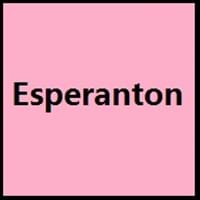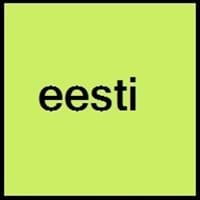Esperanto and Estonian
Countries
East Asia, European Union, South America
Estonia, European Union
National Language
East Asia, European Union
Estonia, Gambia
Second Language
Central Europe, East Asia, Eastern Europe, South America
Not spoken in any of the countries
Speaking Continents
Asia, Europe, South America
Europe
Minority Language
Not spoken in any of the countries
Denmark, Russia, Sweden
Regulated By
Akademio de Esperanto
Institute of the Estonian Language
Interesting Facts
- The most widely spoken constructed language in the world is Esperanto.
- Esperanto is an artificial international language.
- Estonian language is considered to be powerful symbol of Estonian identity and culture.
- Estonian language has adopted many words with Finnish language.
Similar To
Not Available
Finnish
Derived From
Not Available
Not Available
Alphabets in
Esperanto-Alphabets.jpg#200
Estonian-Alphabets.jpg#200
Writing Direction
Not Available
Left-To-Right, Horizontal
How Are You?
Kiel vi sanas?
kuidas sul läheb
Good Night
Bonan nokton
Head ööd
Good Evening
Bonan vesperon
Tere õhtust
Good Afternoon
Bonan posttagmezon
Tere päevast
Good Morning
Bonan matenon
Tere hommikust
Sorry
Mi bedaŭras!
Vabandust
I Love You
Mi amas vin
ma armastan sind
Excuse Me
Pardonu!
Vabandage
Dialect 1
Not present
Keskmurre
Where They Speak
Not present
Gabon, Northeastern coast of Estonia
Dialect 2
Not present
Tartu
Where They Speak
Not present
Georgia, South Estonia
Dialect 3
Not present
Idamurre
Where They Speak
Not present
France, Northwestern shore of Lake Peipsi.
Speaking Population
Not Available
Not Available
Second Language Speakers
Not Available
Native Name
Esperanto
eesti keel
Alternative Names
Eo, La Lingvo Internacia
Eesti keel
French Name
espéranto
estonien
German Name
Esperanto
Estnisch
Pronunciation
[espeˈranto]
Not Available
Ethnicity
Not Available
Estonians
Language Family
Indo-European Family
Uralic Family
Subgroup
Not Available
Finno-Ugric
Branch
Not Available
Finnic
Early Forms
Proto-Esperanto
No early forms
Standard Forms
Esperanto
Estonian
Signed Forms
Signuno
Estonian Sign Language
Scope
Individual
Macrolanguage
ISO 639 6
Not Available
Not Available
Glottocode
espe1235
esto1258
Linguasphere
51-AAB-da
No data available
Language Type
Constructed
Living
Language Linguistic Typology
Not Available
Subject-Verb-Object
Language Morphological Typology
Agglutinative
Agglutinative
All Esperanto and Estonian Dialects
Most languages have dialects where each dialect differ from other dialect with respect to grammar and vocabulary. Here you will get to know all Esperanto and Estonian dialects. Various dialects of Esperanto and Estonian language differ in their pronunciations and words. Dialects of Esperanto are spoken in different Esperanto Speaking Countries whereas Estonian Dialects are spoken in different Estonian speaking countries. Also the number of people speaking Esperanto vs Estonian Dialects varies from few thousands to many millions. Estonian dialects include: Keskmurre , Tartu. Also learn about dialects in South American Languages and North American Languages.
Esperanto and Estonian Speaking population
Esperanto and Estonian speaking population is one of the factors based on which Esperanto and Estonian languages can be compared. The total count of Esperanto and Estonian Speaking population in percentage is also given. The percentage of people speaking Esperanto language is Not Available whereas the percentage of people speaking Estonian language is Not Available. When we compare the speaking population of any two languages we get to know which of two languages is more popular. Find more details about how many people speak Esperanto and Estonian on Esperanto vs Estonian where you will get native speakers, speaking population in percentage and native names.
Esperanto and Estonian Language Codes
Esperanto and Estonian language codes are used in those applications where using language names are tedious. Esperanto and Estonian Language Codes include all the international language codes, glottocodes and linguasphere.





